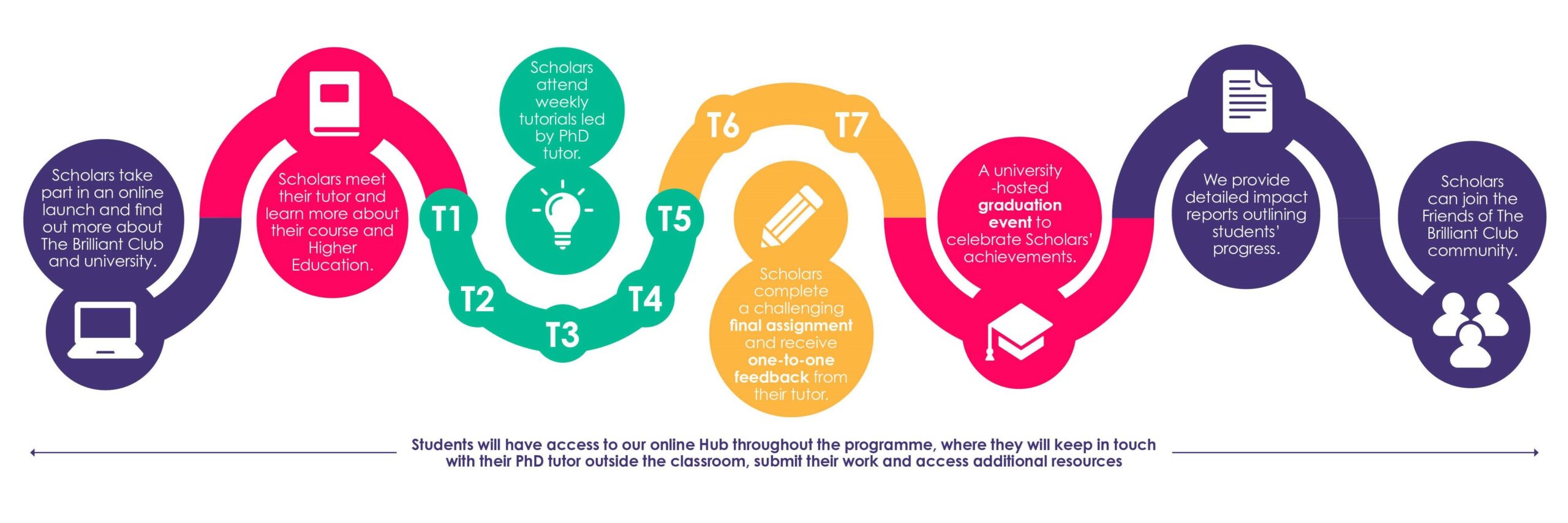The attainment gap between the most and least advantaged students is at an all-time high. At KS2, students eligible for free school meals are now 7 months behind their more advantaged peers and by GCSEs, they are 18 months behind (NFER, 2022). In Wales, the attainment gap is even larger, and currently stands at about 22-23 months. But students who are experiencing persistent poverty experience a more serious attainment gap: in England the persistent disadvantage gap was equal to about 23 months of learning, while in Wales it was 29 months.
On average, students eligible for free school meals achieve more than three quarters of a grade lower per GCSE subject than students with the same ability from better off backgrounds. Since the pandemic, these gaps in attainment have been getting wider every year. That’s why The Scholars Programme exists: working to build the confidence and skills to help young people to succeed at school and beyond.
Recent research has shown a positive link between The Scholars Programme and GCSE attainment, with particularly significant data on students with average prior attainment, who were twice as likely to achieve a 9-5 in maths and English at GCSE after taking part in The Scholars Programme in Year 10.
We have been running independent UCAS evaluations on The Scholars Programme since 2017. Each evaluation has shown that this programme makes a statistically significant difference to university application.

Our community of over 1,000 PhD tutors is what makes The Brilliant Club unique. For some students, the only doctor they may have ever met is in a medical setting, but our programme opens up the world of academic research and gives young people the opportunity to study university-level work in an accessible way.
Our tutors are recruited from a range of disciplines covering STEM, arts and humanities and social sciences. The training also supports tutors to develop their understanding of pedagogy and teaching practice to deliver high quality tutorials to small groups of students. Tutors also undergo safeguarding and professional standards training.
Each student receives a course handbook to support them through the programme. This includes all of the material that they need for their tutorials and final assignment. Students will also have access to our online portal The Hub throughout the programme to submit work and get support from their tutor.
These examples provide a flavour of the exciting courses students have studied in the past. Schools and colleges can indicate a preference for a subject stream but we can’t offer courses for specific subject tutoring.
Click on a course title for the course rationale and more information.
We work with non-selective state schools across the UK.
The Brilliant Club requires that at least 55% of pupils registered on the programme fulfil at least one of the following criteria:
Please note, if you are in receipt of funding from an external organisation such as a Uni Connect, additional targeting criteria may apply.
The school contribution is £2,779 per placement. This cost is subsidised through contributions from our university partners and external grants and donations.